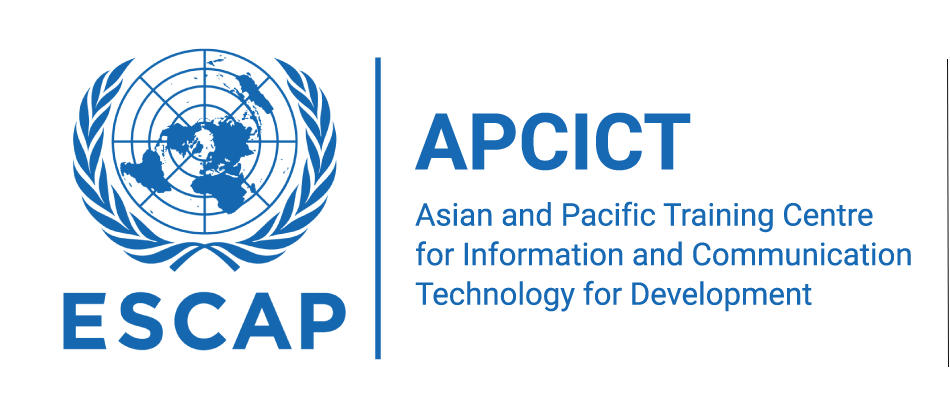Over 50 government officials, professors and educators from countries in Central Asia team-up with the United Nations to enhance the use of information and communication technologies (ICTs) in support of development initiatives in the sub-region.
07 September – Over 50 government officials, professors and educators from countries in Central Asia team-up with the United Nations to enhance the use of information and communication technologies (ICTs) in support of development initiatives in the sub-region.
The United Nations Asian and Pacific Training Centre for Information and Communication Technology for Development (UN-APCICT/ESCAP), a regional institute of the Economic and Social Commission for Asia and the Pacific (ESCAP), is partnering with a number of sub-regional research and educational institutions over the next two weeks to deliver training on the “Academy of ICT Essentials for Government Leaders” (Academy). The Academy is APCICT’s flagship training programme designed to equip government leaders with the necessary skills and knowledge to leverage ICT for socio-economic development. The Russian version of the first 8 modules of the Academy was rolled-out in Central Asia in the fall of 2009.
“APCICT is pleased to be working with researchers and educator from countries within Central Asia to help enhance ICT human resource and institutional capacity,” said Dr. Hyeun-Suk Rhee, Director of APCICT. “We are encouraged by the commitment demonstrated by our partners to continue strengthening the capacity to use ICT to help achieve the sub-region’s socio-economic development goals.”
On 7-9 September, the Central Asian Research and Education Network (CAREN), the National Information Technology Centre of Kyrgyzstan (NITC) and APCICT will co-organize the First Sub-regional Training of Trainers Workshop in Issyk-Kul Lake Kyrgyzstan, on two, new training modules of the Academy programme: Module 9 – ICT for Disaster Risk Management; and Module 10 – ICT and Climate Change. The two modules were translated into Russian by NITC.
Over 20 trainers, professors and educators from Armenia, Azerbaijan and the CAREN member states of Kyrgyzstan, Tajikistan, Turkmenistan, Uzbekistan and Kazakhstan, will be trained on the modules. Representatives from the European Commission and ESCAP’s new Sub-regional Office for North and Central Asia (SONCA), based in Almaty Kazakhstan, will also participate, providing a platform for enhancing cooperation in the sub-region.
The workshop aims to enhance sub-regional capacity in the use of ICT to better manage disaster risk and address the challenges presented by climate change.
Upon completion of the workshop, training facilitators will go on to deliver Module 9 and Module 10 training to officials and decision-makers in their respective countries.
"There is a great need to use all available resources to better manage the challenges presented by disaster occurrences and climate change" said Professor Askar Kutanov, Regional Coordinator of the European Commission CAREN project. “Academy modules 9 and 10 will serve as valuable tools as we work with our respective governments to strengthen the use of ICT in our respective national climate change and disaster management frameworks.”
The following week, on 13-17 September, APCICT will be in Dushanbe, Tajikistan to launch the Tajik version of the Academy in partnership with the Open Society Institute Assistance Foundation (OSI-AF), the Tajik Academician Research and Educational Network Association (TARENA), and the Association of Internet Service Providers.
The Academy was first launched in Tajikistan in the fall of 2009, using Russian language modules. As a result of the success of this initial launch, APCICT’s partners in Tajikistan have localized and translated the first 8 modules of the Academy into Tajik to increase access to the Academy and enhance the capacity of government officials and development stakeholders to use ICT for development in the country.
“The Tajik version of the Academy will greatly extend the reach of the programme so that more government officials and national development stakeholders can benefit from it”, said Ms. Zuhra Halimova, Executive Director of OSI-AF.
The launch will include a training of trainers workshop welcoming over 30 participants to receive training on three Academy modules, including: Module 3 – e-Government Applications; Module 7 – ICT Project Management in Theory and Practice; and Module 8 – Options for Funding ICT for Development. Training will be delivered by facilitators from APCICT’s network of Academy resource persons from Kyrgyzstan, Uzbekistan and Mongolia; thus strengthening APCICT’s partnerships within the sub-region, and helping to facilitate cooperation between institutions from different countries in Central Asia.
The Academy is also available in English, Bahasa Indonesia, Vietnamese, Mongolian, and Myanmar language. The translation of the Academy into other languages is also underway.
First launched in 2008, the Academy has been rolled-out in 20 countries across the Asia-Pacific region in partnerships with national governments, academic institutions and regional development stakeholders.



